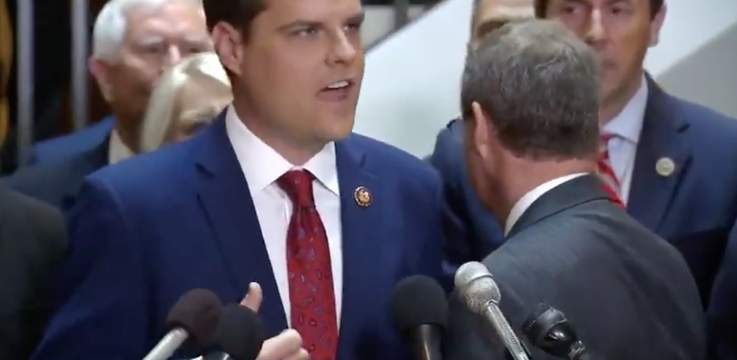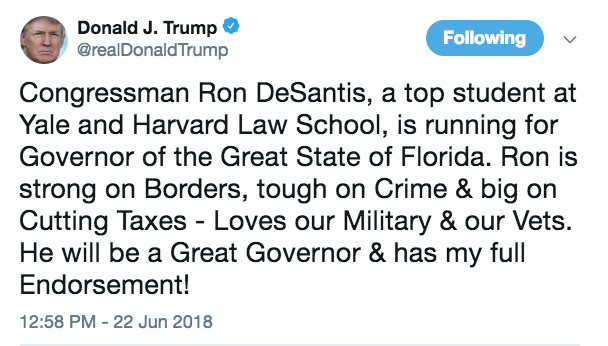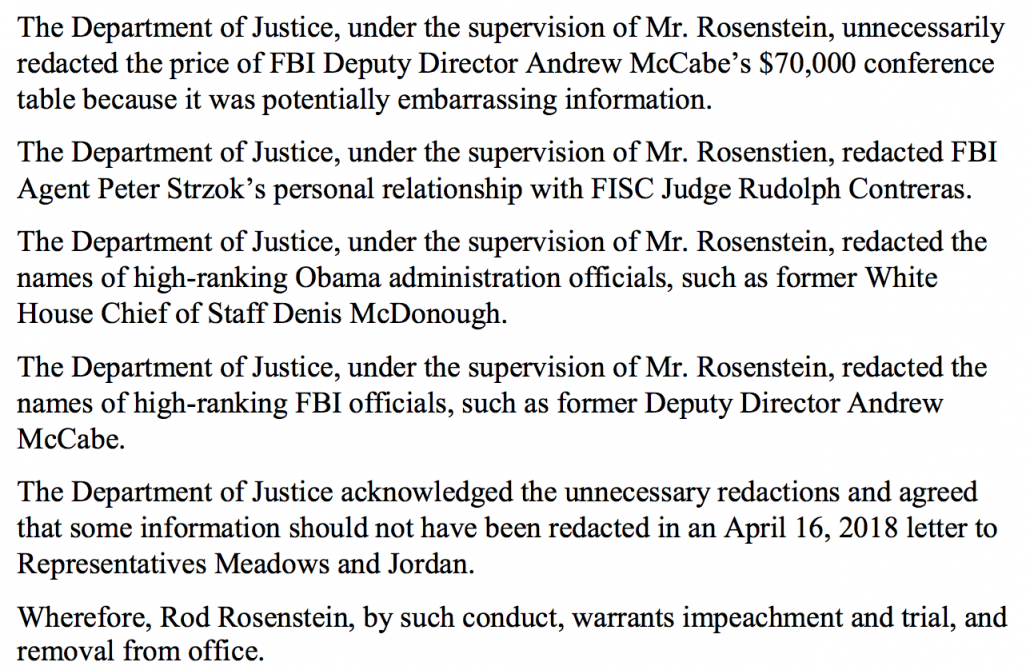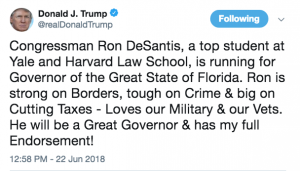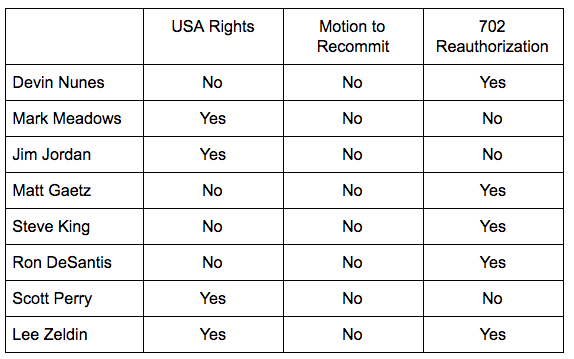John Solomon is feeding the frothy right with faux scandals based off dubious propaganda again.
What John Solomon’s document really shows
“Konstantin Kilimnik Shared Stolen Data Laundered Through Bannon’s Propaganda with State Department.”
That’s what the title of an article based off a document propagandist John Solomon turned into the latest frothy right shiny object. After all, the fragment of the email exchange between Kilimnik and a guy at State named Eric Schultz that Solomon includes ends with Kilimnik attributing the narrative that Trump is dangerously close to Russia to Hillary solely because Ken Vogel, who wrote an article critical of Manafort, once shared an article critical of Hillary with her team before publishing it. He cites a Breitbart story that, the same day the DNC emails stolen by Russia were released, focused on Vogel.
First, it is definitely HRC and her HQ who launched this shitstorm trying to use construction of Putin=very bad, Putin=Manafort, Manafort=Trump, therefore Trump=Putin=very bad.” If you Google Ken Vogel who wrote the original BS piece — it turns out he is the same journalist who created a controversy a month or so ago by clearing his stories with the DNC prior to submission. http://www.breitbart.com/big-journalism/2016/07/22/ken-vogel-politico-dnc-emails/ .
Just twenty days before Kilimnik wrote this, he had snuck into a cigar bar to meet Paul Manafort and discuss how Manafort planned to win Michigan in the same meeting where they discussed carving up Ukraine. At the time, Manafort’s childhood buddy Roger Stone was wandering around claiming he had advance knowledge of what WikiLeaks had, claims he interspersed with Steve Bannon propaganda. In fact, just the day before Kilimnik wrote this, Stone correctly predicted that WikiLeaks would ultimately drop John Podesta’s emails, which for Stone meant that Trump would have opposition material to counter the attacks on Manafort at the time.
The Mueller Report shows that four days earlier, Kilimnik had told Schultz what Trump’s internal polling data looked like, which is one of the ways the government proved that Manafort lied when he claimed he had only been sharing public data with Kilimnik.
[redacted] with multiple emails that Kilimnik sent to U.S. associates and press contacts between late July and mid-August of 2016. Those emails referenced “internal polling,” described the status of the Trump Campaign and Manafort’s role in it, and assessed Trump’s prospects for victory. 895
895 8/18/16 Email, Kilimnik to Dirkse; 8/18/16 Email, Kilimnik to Schultz; 8/18/ 16 Email, Kilimnik to Marson; 7/27/16 Email, Kilimnik to Ash; 8/18/16 Email, Kilimnik to Ash; 8/ 18/ 16 Email, Kilimnik to Jackson; 8/18/16 Email, Kilimnik to Mendoza-Wilson; 8/19/16 Email, Kilimnik to Patten. [my emphasis]
So at a time when Kilimnik had recently been trading Ukraine for Michigan, he wrote someone at the State Department and offered him up Steven Bannon’s remarkably quick attack on Hillary based off emails stolen by GRU to help Trump (remember, Bannon ran Breitbart at the time).
The latest GOP spin about Kilimnik is that he did not have ties to GRU (even though his Oleg Deripaska contact was sanctioned last year with all the other GRU people behind the 2016 attack), because he was actually a State Department informant. So what Solomon is showing — again, using GOP standards for scandal — is that someone he claims was a State Department informant was stovepiping information from the stolen documents, via Bannon, to State, perhaps in an effort to ratchet up attention on Hillary.
But that’s not the story Solomon tells (nor does Solomon give us the entire document to see what else Kilimnik was stovepiping into State as an alleged informant).
Solomon’s propaganda laundry sources and methods
Before I describe what Solomon’s latest fiction does claim, let’s talk about his sources and methods, which are fairly well-established at this point. Solomon has consistently been used in the effort to undermine the investigation into Trump this way:
- Executive or Congressional sources dump documents to Solomon
- Solomon writes a logically ridiculous story based off documents, without releasing the entirety of the documents so he can be fact-checked
- Congressional sources use Solomon’s story to make claims unsubstantiated by the actual evidence he got leaked but about which they can nevertheless submit bogus legal complaints
- The frothy right goes nuts over the latest pseudo scandal
This particular pseudo-scandal is based off the cherry-picked document showing Kilimnik doing what the frothy right accuses Christopher Steele of doing and a misreading of two warrant applications. In addition to the cherry-picked fragment from the Kilimnik email to Schultz, Solomon relies on the following documents:
In recent iterations, Solomon’s modus operandi has also been to make claims about what Mueller didn’t use. To that end, this story relies on the assertion that Mueller’s office got the Kilimnik email, sourced to three “sources familiar with the documents.”
Special counsel Robert Mueller’s team and the FBI were given copies of Kilimnik’s warning, according to three sources familiar with the documents.
Those three sources sound awfully similar to the three sources Solomon based his earlier story claiming Kilimnik was a State informant on.
Three sources with direct knowledge of the inner workings of Mueller’s office confirmed to me that the special prosecutor’s team had all of the FBI interviews with State officials, as well as Kilimnik’s intelligence reports to the U.S. Embassy, well before they portrayed him as a Russian sympathizer tied to Moscow intelligence or charged Kilimnik with participating with Manafort in a scheme to obstruct the Russia investigation.
Manafort obtained all these documents in discovery, so it would be unsurprising if that discovery found its way to Solomon.
So this fits the John Solomon propaganda laundry pattern:
- Sources that may have access to Manafort’s discovery dump documents to Solomon
- Solomon writes a logically ridiculous story, in this case hiding part of a document that might show more of how Kilimnik himself was laundering documents stolen by Russia and magnified by Steve Bannon into the State Department
- According to an update to Solomon’s story, Mark Meadows, “is asking the Justice Department inspector general to investigate the FBI and prosecutors’ handling of the Manafort warrants, including any media leaks and evidence that the government knew the black ledger was potentially unreliable or suspect evidence”
- The frothy right goes nuts (and Don Jr. goes even more nuts) (Update: Matt Gaetz just entered this into the record)
Solomon’s illogical misreading
Now that we’ve established that this is yet another instance of Trump supporters using Solomon as a tool to launder illogical propaganda to fire up the frothy right, let’s look at how he misreads the evidence.
Solomon argues that the “Black Ledger” allegedly showing that Paul Manafort received illicit payments from his Ukrainian paymasters was the excuse the FBI used to “resurrect” the criminal case against him, and that they used it after having been “warned repeatedly” that it was fake.
In search warrant affidavits, the FBI portrayed the ledger as one reason it resurrected a criminal case against Manafort that was dropped in 2014 and needed search warrants in 2017 for bank records to prove he worked for the Russian-backed Party of Regions in Ukraine.
There’s just one problem: The FBI’s public reliance on the ledger came months after the feds were warned repeatedly that the document couldn’t be trusted and likely was a fake, according to documents and more than a dozen interviews with knowledgeable sources.
[snip]
For example, agents mentioned the ledger in an affidavit supporting a July 2017 search warrant for Manafort’s house, citing it as one of the reasons the FBI resurrected the criminal case against Manafort.
“On August 19, 2016, after public reports regarding connections between Manafort, Ukraine and Russia — including an alleged ‘black ledger’ of off-the-book payments from the Party of Regions to Manafort — Manafort left his post as chairman of the Trump Campaign,” the July 25, 2017, FBI agent’s affidavit stated.
So there are two steps to his argument:
- The ledger served as an important reason behind the “resurrection” of the investigation into Manafort
- FBI Agents knew the ledger was fake but used it anyway
In addition, Solomon recycles a claim the very Manafort-friendly TS Ellis found unpersuasive about an FBI/Andrew Weissmann role in the AP story cited in the warrant application.
The FBI did not claim that the ledger served as an important reason behind the “resurrection” of the investigation into Manafort
Logically, all the documents Solomon have been leaked only matter if it is true that the ledger was a key reason why the investigation into Manafort remained ongoing in 2017.
But neither of the warrants show that.
The July warrant is to search Manafort’s condo in conjunction with FBAR, FARA, bank fraud, money laundering, and foreign national donations (this is the first known warrant tied to the June 9 meeting). The reference to the Black Ledger stories comes in a paragraph specifically introduced as “by way of background.” It’s background — critical background for why Manafort still didn’t want to properly register under FARA — but not submitted as proof at all.
6. By way of background concerning Manafort, based on publicly available information, in March of 2016, Manafort officially joined Donald J. Trump for President, Inc. (the ‘Trunp) Campaign”), the presidential campaign of then candidate Trump, in order to, among other things, help.manage the delegate process for the Republican National Convention. In May of 2016, Manafort became chairman of the Trump Campaign. In June of 2016, Manafort reportedly became de facto manager for the Trun^ Campaign with the departure of prior campaign manager Corey Lewandowski. On August 19, 2016, after public reports regarding connections between Manafort, Ukraine, and Russia – including an alleged “black ledger” of off-the-book payments from the Party of Regions to Manafort – Manafort left his post as chairman of the Trump Campaign.
The very next paragraph includes a transition marking the beginning of the guts of the proof of probable cause:
Portions of the information set forth below
In other words, the ledger reference only serves to explain why Manafort got fired, which is important background for why he was hiding his sleazy influence peddling. It is not part of the probable cause proof at all.
In any case, the reference is actually to both the NYT and AP’s stories, the latter of which only reported on the extent of Manafort’s undisclosed lobbying and didn’t reference the ledger at all. (Note, Vogel was not involved in any of this, which makes Kilimnik’s claim that all the ties of Trump to Putin came from him tough to understand.)
Notably, Solomon doesn’t mention the May 2017 affidavit to search Manafort’s storage unit, which, because it comes earlier, is a better read of how the government came to focus on Manafort (in significant part because it was not part of Mueller’s investigation), and which was incorporated by reference in the paragraph following the one mentioning Manafort’s resignation and attached to the July affidavit. That affidavit describes the ledger as something the FBI was actively investigating.
20. In addition, law enforcement agents are investigating whether or not all income received by Manafort and Gates was properly reported as required under U.S. law. In the summer of 2016, investigators from Ukraine’s National Anti-Corruption Bureau obtained a handwritten ledger said to belong to the Party of Regions (“ledger”). The ledger contains hundreds of pages of entries purporting to show payments made to numerous Ukrainians and other officials
21. The ledger contained entries indicating that Manafort had been paid $ 12.7 million by the Party of Regions in 22 separate payments that occurred between 2007 and 2012. U.S. law enforcement is investigating whether any of these sums we paid to Manafort or (jates or others for their benefit.
So when Theresa Buchanan approved the July warrant, she was reminded that she had already approved the May warrant describing the ledger as still under investigation.
The October warrant was to seize the bank accounts Manafort got from the Federal Savings Bank in Chicago — these are the loans that Manafort got by trading a Trump campaign position to Steve Calk. The passage in question appears in a section titled, “Evidence of DMI’s work on behalf of the Party of Regions in the United States in 2005,” following a discussion of how under the Bush Administration, Manafort secretly shared details from NSC discussions about Ukraine with Rinat Akhmetov to show that “Our strategy in the United States is working.”
As released, it’s not actually clear how the FBI Agent is using the April AP story, which confirms Manafort received a payment in 2007 that may be associated with the 2005 and 2006 lobbying described in the section. The probable cause assertion remains redacted, which might mean it involved sensitive intelligence. The only thing unredacted, however, is that there are payments in the ledger that match known payments Manafort got in 2007 and 2009, which is a way to introduce Manafort’s claim, in 2017, that he got paid according to his clients’ wishes.
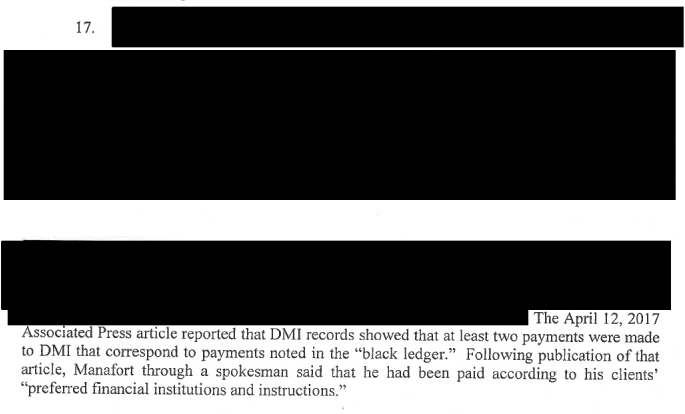
That quote comes from this non-denial denial that the ledger could be true based off the fact that Manafort never got paid in cash.
In a statement to the AP on Tuesday, Manafort did not deny that his firm received the money but said “any wire transactions received by my company are legitimate payments for political consulting work that was provided. I invoiced my clients and they paid via wire transfer, which I received through a U.S. bank.”
Manafort noted that he agreed to be paid according to his “clients’ preferred financial institutions and instructions.”
On Wednesday, Manafort’s spokesman Jason Maloni provided an additional statement to the AP, saying that Manafort received all of his payments via wire transfers conducted through the international banking system.
“Mr. Manafort’s work in Ukraine was totally open and appropriate, and wire transfers for international work are perfectly legal,” Maloni said.
He noted that Manafort had never been paid in cash. Instead, he said Manafort’s exclusive use of wire transfers for payment undermines the descriptions of the ledger last year given by Ukrainian anti-corruption authorities and a lawmaker that the ledger detailed cash payments.
Manafort has pled guilty to the two key details included in this passage in the affidavit: that he was lobbying for the Party of Regions as early as 2006, and that he was trying to hide that relationship (see ¶¶4, 6, and 7 for those admissions). So the assertion in question — that Manafort was lobbying for Akhmetov in 2006 and got paid for it in 2007 — was not faulty. Moreover, the AP story in question specifically said that it hard confirmed those two payments, which would seem to raise questions about 2016 claims that the ledger was totally unreliable.
So to sum up:
- The May 2017 warrant Solomon doesn’t mention but which was incorporated by reference and attachment into the July one describes the FBI still investigating the ledger
- The July 2017 warrant doesn’t rely on either the ledger or the story about it as proof; rather, the story about it (but not the ledger) is described as background that explains why Manafort continued to lie about his ties to Ukraine
- What the FBI used the ledger for in October 2017 not only had been corroborated after the 2016 evidence claiming the ledger was totally bunk, but Manafort has since pled guilty to the substance it addresses
The key claim behind Solomon’s breathless propaganda is bullshit.
FBI Agents knew the ledger was fake but used it anyway
How the FBI actually used the ledger each of those three times is important to Solomon’s claim that the FBI “knew” the ledger was fake but used it anyway. Solomon claims that “documents and more than a dozen interviews with knowledgeable sources” prove that “the feds were warned repeatedly that the document couldn’t be trusted and likely was a fake.” But he only provides two pieces of evidence. First, he cites Nazar Kholodnytsky’s claims about the ledger (but not records of how those he spoke with responded).
Ukraine’s top anticorruption prosecutor, Nazar Kholodnytsky, told me he warned the U.S. State Department’s law enforcement liaison and multiple FBI agents in late summer 2016 that Ukrainian authorities who recovered the ledger believed it likely was a fraud.
“It was not to be considered a document of Manafort. It was not authenticated. And at that time it should not be used in any way to bring accusations against anybody,” Kholodnytsky said, recalling what he told FBI agents.
Kholodnytsky has been at the center of Trump-related and his own scandals in recent months, so I’m interested in when Solomon interviewed him (and whether Rudy Giuliani was involved). But assuming his representation of what he told the FBI is true and was confirmed (which, if true, Manafort would have gotten in discovery, but which Solomon doesn’t mention), it doesn’t change that the ledger was not used to bring accusations against anyone — though was still being investigated in 2017.
Nor does Solomon’s reliance on Kilimnik’s claims help. Kilimnik, after all, said, “I am pretty sure Paul is not vulnerable on either black cash or Fara stuff.” Not only was Kilimnik wrong about both Manafort and his other American partner Sam Patten’s vulnerability on FARA, but he took a number of actions over the course of the investigation into Manafort — working with Alex van der Zwaan to suppress evidence of FARA violations back in 2012 and reaching out to other consultants to hide their US lobbying for Manafort — that led to criminal charges for himself and others specifically on FARA. That is, Kilimnik made these claims during a period when he was involved in several crimes to try to save Manafort from FARA crimes, so there’s no reason to treat what he says as reliable.
Further, the same email makes claims about Ukraine — notably, that “nobody will do anything for Ukraine other than Ukrainians” — that are in striking contrast to the actions he had taken 3 weeks earlier to get both the US and Russia to impose a solution on Ukraine, with Manafort’s help.
And ultimately, Kilimnik makes the same non-denial denial that Manafort was still making the following year.
I know for a fact that he did not know about the black cash existence — he never focused on such things, and could not have possibly taken large amounts of cash across three borders. It was always a different arrangement — payments were in wire transfers to his companies, which is not a violation (sort of SuperPAC scheme) and then he took his personal fee and fully paid his taxes etc.
Denying that Manafort knew of any cash payments is meaningless, since he also tried to keep plausible deniability about his Cayman shell companies. But it’s also now proven (in part by Manafort’s guilty pleas) that the shell companies he used weren’t a SuperPAC, his transfer of funds for payment weren’t all legal, and he didn’t pay his taxes.
In short, the smoking gun document Solomon has the right wing all frothy over actually shows that Kilimnik was at best ignorant and more likely willfully lying.
Solomon makes claims that even TS Ellis found unpersuasive
But as is his wont, Solomon doesn’t stop there. He tries to resuscitate a claim Manafort tried as part of his EDVA trial that Manafort friendly judge TS Ellis already ruled was bogus, suggesting that FBI and DOJ illegally leaked to the AP reporters behind one of these stories.
There are two glaring problems with that assertion.
First, the agent failed to disclose that both FBI officials and Department of Justice (DOJ) prosecutor Andrew Weissmann, who later became Mueller’s deputy, met with those AP reporters one day before the story was published and assisted their reporting.
An FBI record of the April 11, 2017, meeting declared that the AP reporters “were advised that they appeared to have a good understanding of Manafort’s business dealings” in Ukraine.
So, essentially, the FBI cited a leak that the government had facilitated and then used it to support the black ledger evidence, even though it had been clearly warned about the document.
In April 2018, Manafort’s team tried to argue that prosecutors had been illegally leaking about him, based in part on the April 2017 AP story. The government noted that nothing in the stories reflected grand jury information, the accusation lodged by Manafort. On June 29, Judge Ellis held a motions hearing including testimony from one of the FBI agents involved in the meeting with the AP, Jeffrey Pfeiffer. Pfeiffer covered both the AP meeting and the search of the storage facility, meaning Judge TS Ellis heard his testimony on both these issues at once. Pfeiffer described that he and others at the AP meeting actually no commented most questions, but did get investigative information regarding the storage unit from the AP.
Q. Now, you testified earlier that you searched the storage unit. How did you come to understand that Mr. Manafort used a storage unit?
A. I don’t recall exactly. It was either through my investigative efforts or through a meeting that occurred with reporters of the Associated Press.
[snip]
Q. And how did the Government representatives respond?
A. Generally, no comment as far as questions involving any sort of investigation.
Q. And based on the meeting, did it appear as though the reporters had conducted a substantial investigation with respect to Mr. Manafort?
A. They had.
Q. During that meeting, did one of the reporters mention a storage unit in Alexandria, Virginia, associated with Mr. Manafort?
A. He did.
Under cross-examination, Pfeiffer reiterated that the government mostly gave no comment to the AP, and he didn’t remember a comment that said the AP had a good understanding of Manafort’s business.
Q. So in reviewing some of the Jencks material that I was just provided, I wanted to ask you about a specific section, which is at the end of one of the memos that was written with respect to that meeting, and I want your comment on it. It says, “at the conclusion of the meeting, the AP reporters asked if we would be willing to tell them if they were off base or on the wrong track, and they were advised that they appear to have a good understanding of Manafort’s business dealings.” Now, you would agree that’s not “no comment,” correct?
A. Correct.
Q. Okay. And when it says, “they were advised,” who on the Government’s side was advising these AP reporters with respect to the nature of Mr. Manafort’s business dealings?
A. I don’t recall that being said, so I don’t — I wouldn’t be able to tell you who said it.
Solomon provides just one of the two Electronic Communications associated with that meeting. The one by Pfeiffer has a different focus than the one by Karen Greenaway that Solomon links, with much less focus on the ledger and much more on Manafort’s financial crimes. It describes the FBI giving no comment over and over. But both ECs make it clear that the AP came in with the ledger story. But the one Solomon does link shows the AP reporters raising two issues that show up in the warrant application: how Manafort first got introduced to Rinat Ahmetov and that Manafort shared a classified NSC document with Akhmetov.
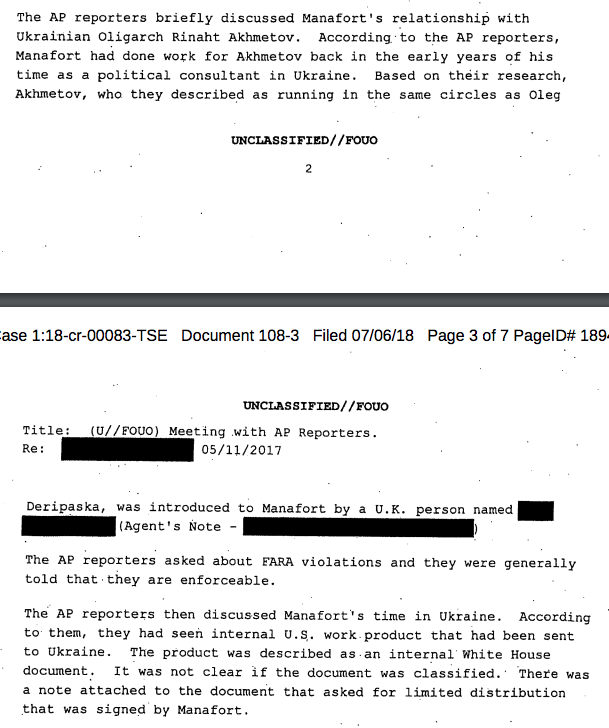
The redaction shows that the FBI had some comment on the Brit who had introduced Akhmetov to Manafort, but didn’t tell the AP that. Nothing in these documents show that the FBI provided substantive information to the AP — they show the opposite, that AP provided information to the FBI and the FBI repeatedly offered no comment. They also definitively show that the AP came into the meeting with information about the ledger.
At the end of the hearing with Pfeiffer, TS Ellis took the leak issue under advisement, meaning he didn’t find Manafort’s case all that persuasive. A week later, Manafort tried to interest Ellis again, to no avail. In short, a very Manafort friendly judge has looked at both these questions and found them insufficiently persuasive to rule on. Solomon doesn’t mention that fact to his readers.
There’s abundant evidence to refute Solomon’s frothy claims. More importantly, there’s evidence that his smoking gun evidence, the email from Kilimnik to Schwartz, actually shows that Kilimnik was actively lying about both Ukraine and Manafort in the period when Republicans claim he was an honest informant to the State Department.
But it’s not John Solomon’s job to tell what the evidence actually shows.
As I disclosed last July, I provided information to the FBI on issues related to the Mueller investigation, so I’m going to include disclosure statements on Mueller investigation posts from here on out. I will include the disclosure whether or not the stuff I shared with the FBI pertains to the subject of the post.

